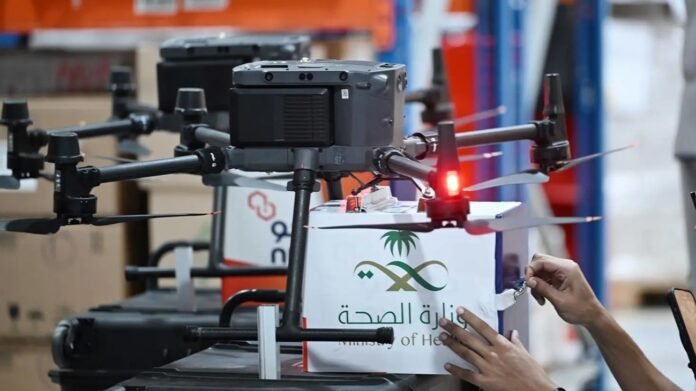Saudi Arabia has taken a major step forward by launching Drone Medicine Delivery in Hajj. The Kingdom completed a pilot program using drones to transport essential medical supplies between hospitals and healthcare centers at the holy sites. The initiative took place during the 1446 Hajj season from June 4 to 9.
This innovative move aims to enhance medical response times and operational efficiency during Hajj. Pilgrims often face extreme conditions and crowded locations, making fast delivery of healthcare critical. With Drone Medicine Delivery in Hajj, Saudi authorities are addressing this challenge head-on.
The project is a collaboration between the Makkah Health Cluster and the National Unified Procurement Company (NUPCO). Together, they manage the logistics and supply chains that keep medical centers stocked and responsive. Their joint effort shows how coordination and technology can improve healthcare services.
Drone Medicine Delivery in Hajj uses a carefully designed multi-phase system. It begins with demand forecasting and delivery planning. The Saudi Food and Drug Authority (SFDA) oversees compliance with regulations.
The initiative is more than a short-term solution. It is a long-term investment in smarter healthcare delivery. It aligns with Saudi Arabia’s Vision 2030 goals, which prioritize innovation and better public services. By investing in technology, the Kingdom is preparing for future challenges.
In conclusion, Drone Medicine Delivery in Hajj is a groundbreaking advancement in medical logistics and healthcare innovation. It proves how modern technology can significantly enhance both the speed and reliability of medical support during one of the world’s largest and most demanding religious gatherings. By addressing logistical challenges and improving real-time response capabilities, this initiative not only protects the health of millions of pilgrims but also sets a new global benchmark for how technology can serve public health in high-pressure environments. It stands as a proud example of how strategic innovation can support humanitarian goals, especially during critical national and religious events.


